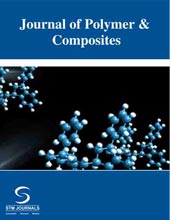Open Access

Devarshi Kapil,

Saurabh Pachauri,

Manish Dixit,

Ashish Swarnkar,
- Assistant Professor Department of Mechanical Engineering, Institute of Engineering & Technology, Dr. B R Ambedkar University, Agra Uttar Pradesh India
- Assistant Professor Department of Mechanical Engineering, Institute of Engineering & Technology, Dr. B R Ambedkar University, Agra Uttar Pradesh India
- Assistant Professor Department of Mechanical Engineering, Institute of Engineering & Technology, Dr. B R Ambedkar University, Agra Uttar Pradesh India
- Research Scholar Department of Mechanical Engineering, MNIT, Allahabad Uttar Pradesh India
Abstract
Friction stir welding (FSW) is a relatively novel method of solid-state joining. This connecting method is adaptable, environmentally benign, and low-energy. The present study focuses on hardness testing on welded butt joints, introducing the Friction Stir Welding procedure on aluminium alloys Al 5083, which are known for their remarkable performance in severe conditions. It is widely used in naval and marine applications due to its excellent resistance to seawater damage. After welding, Al 5083 retains its extraordinary strength. FSW joints were developed for Al 5083 alloys that were similar. At varying tool rotational speeds of 770, 1200, 1200 RPM (Annealed), 1600 friction stir welds of Al 5083 were formed. The tests were carried out using Rockwell hardness testing procedure. The weld zone has the lowest hardness at 770 RPM and the highest hardness (pre-annealed) at 1200 RPM. Prior to characterisation in order to understand the weld quality, several tests were performed on the welds for evaluating the integrity of joints.
Keywords: FSW, Hardness, Rotation Speed, Aluminium alloy, Fractography
[This article belongs to Special Issue under section in Journal of Polymer and Composites(jopc)]
Browse Figures
References
- Kumar SD and Kumar SS. Investigation of Mechanical Behavior of friction-stir welded joints of AA6063 with AA5083 AL Alloy. Mechanics&Mechanical Engineering, July 2019; 23 Issue 1, p59-63. https://doi.10.2478/mme-2019-0008.
- Oosterkamp A, Djapic Oosterkamp L, and Nordeide A. ‘Kissing Bond’ Phenomena in Solid-State Welds of Al Alloys. Welding journal. August 2004; 83 (8)-225S. Corpus ID: 138620222
- Prashanth B, Shravan Kumar K and Prakash D. Tensile Strength and Hardness Test on Friction-Stir Welded Aluminium 6061-T6 and 5083-H111-O Alloys. IJSDR. January 2017; Volume 2, Issue 1. ISSN: 2455-2631.
- HeiraniF, AbbasiA and Ardestani M. Effects of processing parameters on microstructure and mechanical behaviors of underwater friction-stir welding of Al-5083 alloy. Manuf. Proc. Issue 1, 2017; 77-84. https://doi.org/10.1016/j.jmapro.2016.11.002.
- Bodukuri A K, et.al A. Comparison of Aluminum Alloy 5083 properties on TIGW and FSW Processes. Materials Today Procedings. January 2017; Volume 4, Issue 9 ISSN:10197-10201. https://doi.org/10.1016/j.matpr.2017.06.347
- Hirani T, et al. Influence of friction stir-welding parameters on grain size and formability in 5083 Al Mat. Sc. & Engg. May 2007; 456(1-2):344-349. https://doi.org/10.1016/j.msea.2006.12.079
- Dudzik K. and Januszkiewicz J. Influence of welding parameters of FSW on hardness distribution in joints of AW-5083 alloy. Journal of KONES. 2018; Vol. 25, No. 2: 105-112. https://doi.10.5604/01.3001.0012.2783.
- Çam. Friction-Stir welded structural materials: beyond Al-alloys. International Materials Reviews. January 2011; Volume 56, – Issue 1. https://doi.org/10.1179/095066010X12777205875750.
- Swarnkar A, Kumar R and Sahar A . Areview on Friction-Stir Welding: An Enviroment- Friendly Welding Technique. IEEE Region 10 Humanitarian Technology Conference. 2016; (R10-HTC) IEEE.https://doi.org/10.1109/R10-HTC.2016.7906807.
- Suri A. An Improved FSW Tool for Joining Commercial Aluminum Plates. Procedia Materials Science. 6 ( 2014 ) 1857 – 1864. https://doi.org/10.1016/j.mspro.2014.07.216.
- Suri A, Prashant RSS & Raj KH. Comparative study of friction-stir welding and tungsten inert gas welding of pure aluminum. International Conference on Energy Efficient Technologies for Sustainability (ICEETS). April 2013.929-35. https://doi.org/10.1109/ICEETS.2013.6533512.
- Bisadi H et al. The influences of rotational and welding speeds on microstructures and mechanical properties of friction-stir welded Al5083 and commercially pure copper sheets lap joints. Materials & Design. January 2013; Volume 43, , Pages 80-88. https://doi.org/10.1016/j.matdes.2012.06.029. Retrieved on 07-08-2023.
- Arora KS et al. Effect of process parameters on friction-stir welding of aluminum alloy 2219-T87. Int J Adv Manuf Technol. October 2010; 50(9):941-952 https://doi.org/10.1007/s00170-010-2560-3.
- Derazkola HA and Elyasi M. The influence of process parameters in friction-stir welding of Al-Mg alloy and polycarbonate. Journal of Manufacturing Processes. October 2018; Volume 35, Pages 88-98. https://doi.org/10.1016/j.jmapro.2018.07.021.
- Prabha KA, Putha PK and Prasad BS. Effect of Tool Rotational Speed on Mechanical Properties Of Aluminium Alloy 5083 Weldments in Friction-Stir Welding. Materials Today Proceedings, January 2018; Issue 5, Vol 9 – 18535: 8543. Available at https://doi.org/10.1016/j.matpr.2018.06.196. Retrieved on 12-08-2023.

Journal of Polymer and Composites
| Volume | 12 |
| Special Issue | 01 |
| Received | January 6, 2024 |
| Accepted | March 7, 2024 |
| Published | April 24, 2024 |

